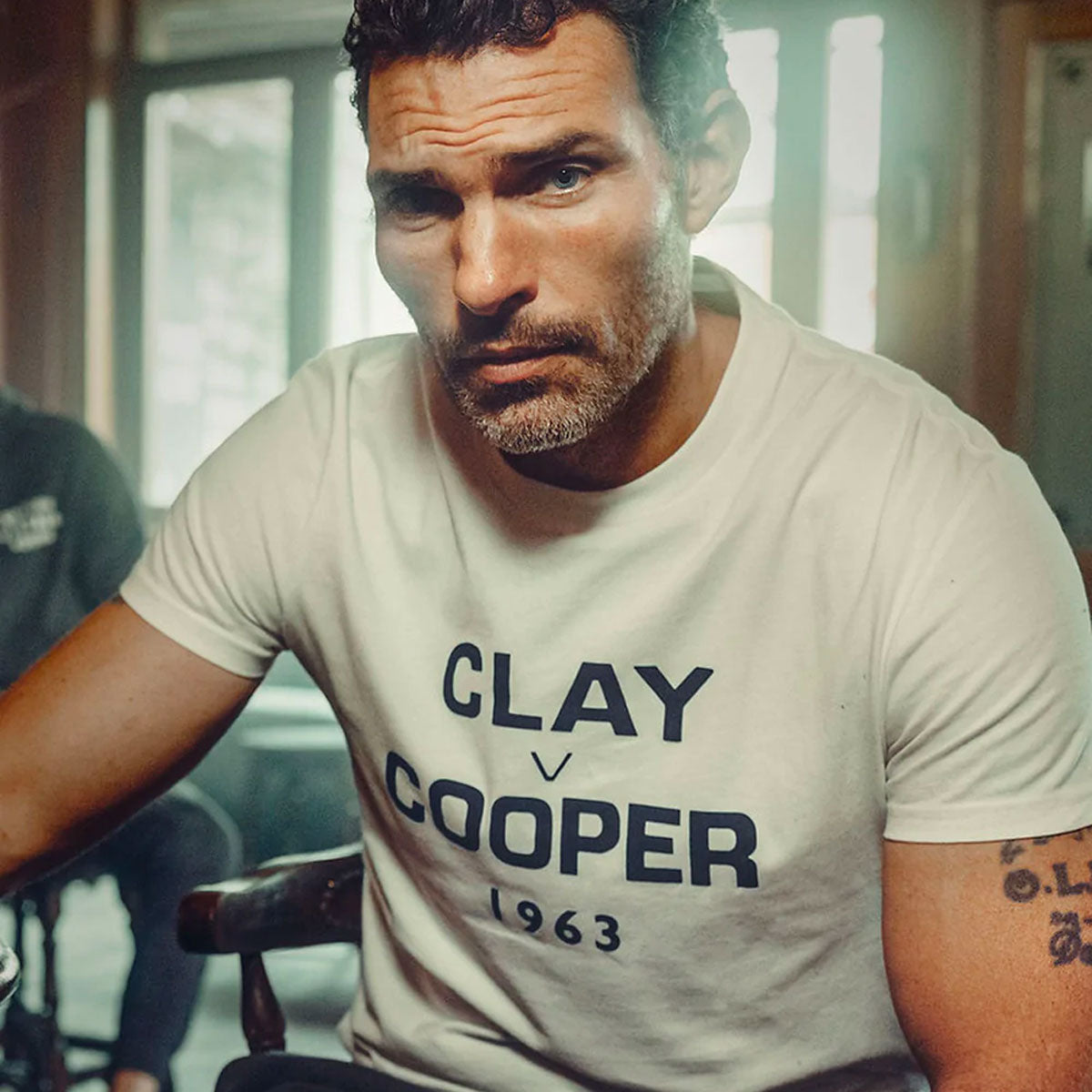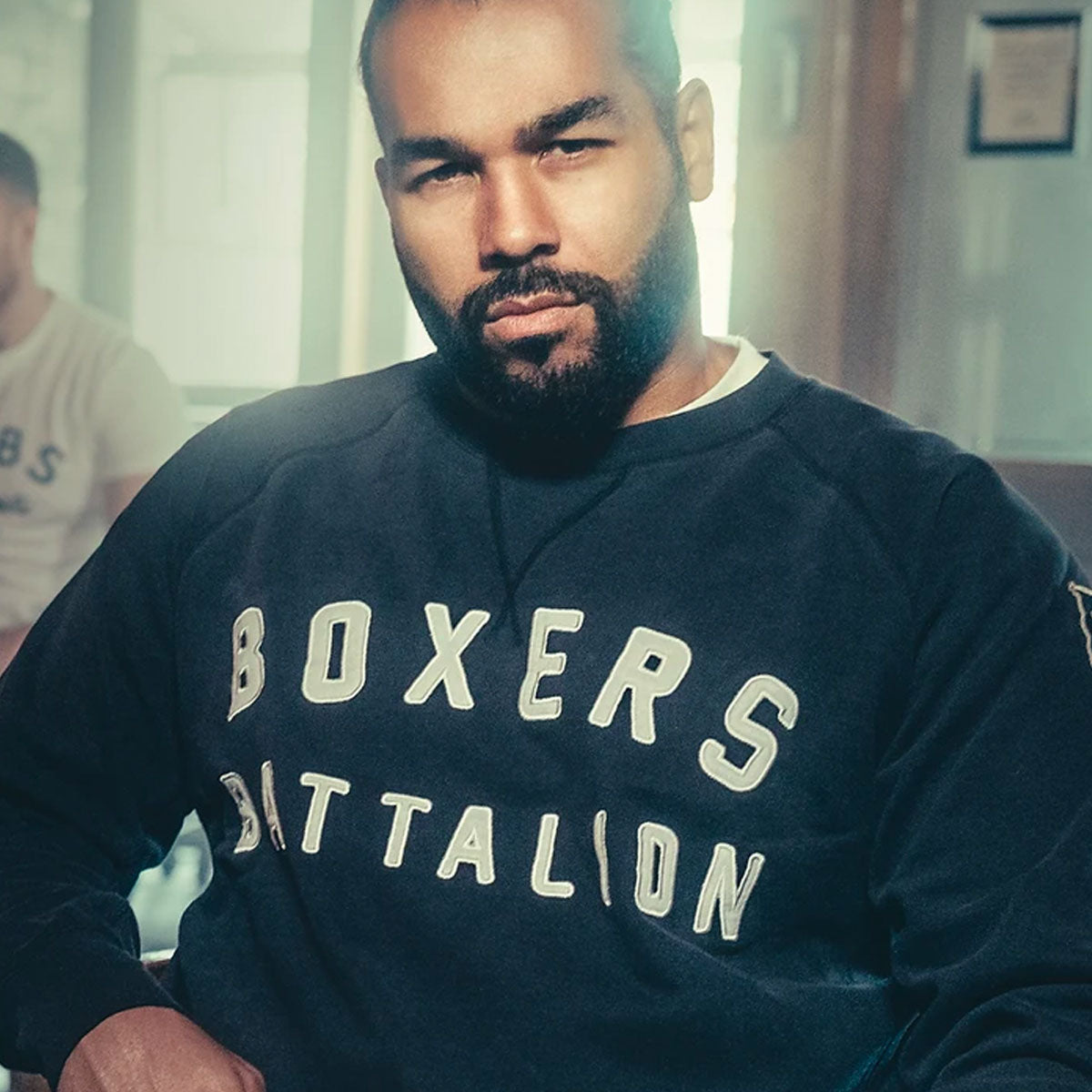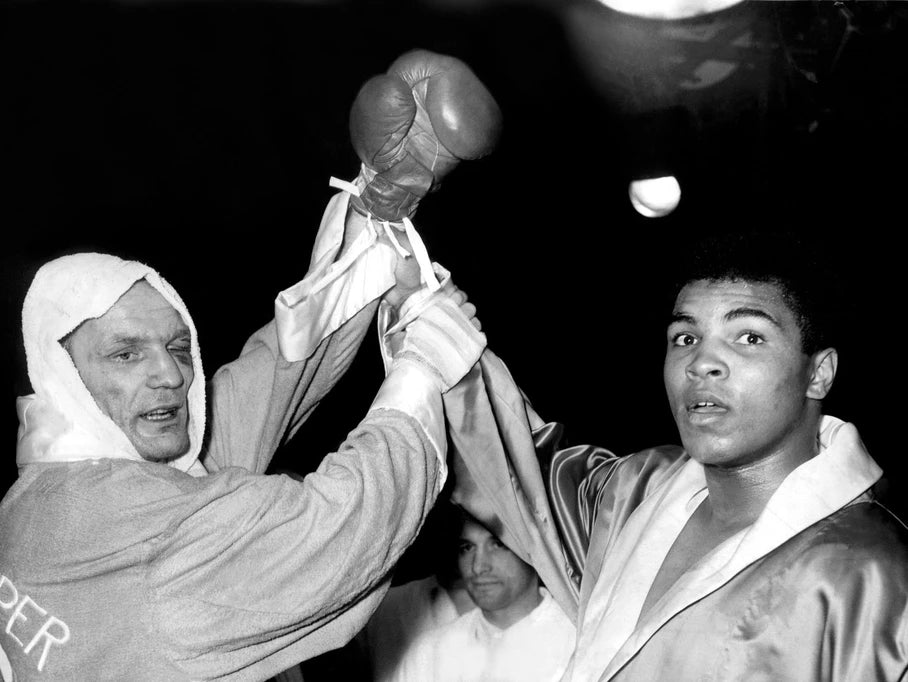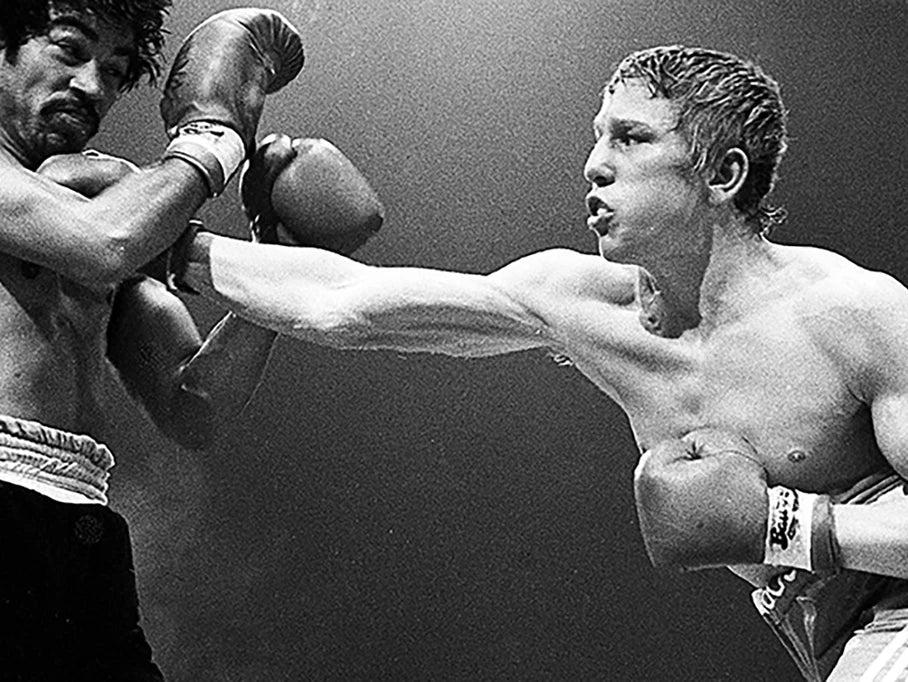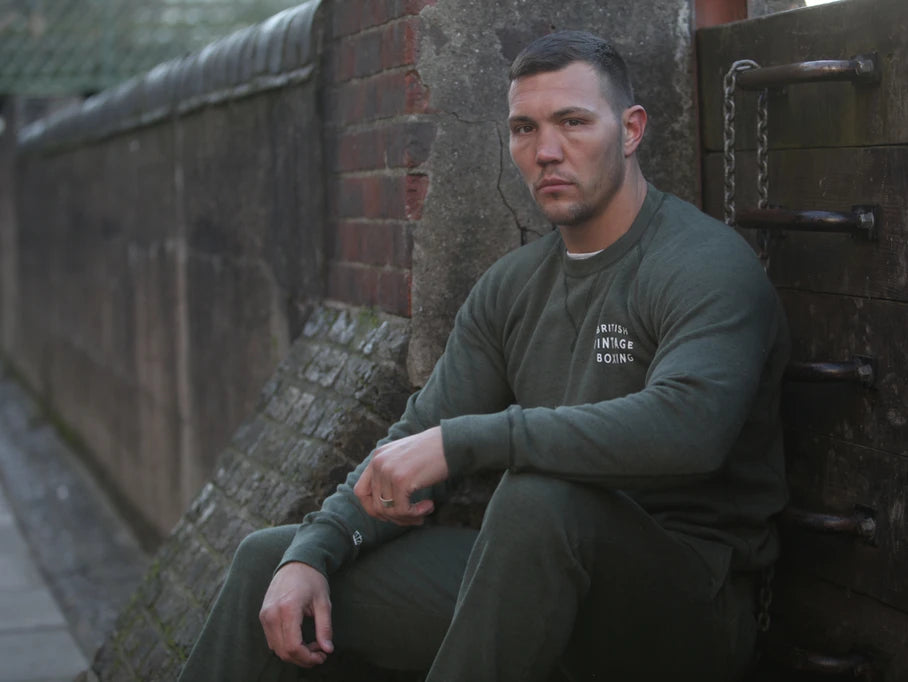On the 18th of June 1963, a young, brash, Cassius Clay visited London to take on Britain's Henry Cooper at Wembley Stadium, London, in a final eliminator for the world heavyweight title against the incumbent king of the big men, Sonny Liston. Cooper was considered by Clay's camp as no more than a routine tune-up fight for the big prize. The morning weigh-in at the London Palladium saw Clay at his theatrical best, entering proceedings in a crown and gown emblazoned with the moniker: CASSIUS THE GREATEST well before he knew he was the greatest. Clay denoted the five rounds he'd close the contest out - a prediction that would ultimately prove correct but not before five of the most dramatic rounds in British boxing history played out. Cooper evidently hadn't read the script.
Fast forward to 9.30pm as the fight begins...
Cooper not noted for his fast start uncharacteristically comes out swinging in the first round, stamping his authority early, serving up the Hors d'oeuvre with a few trademark left-hooks that stun Clay. Cooper knows he has to negate Clay's obvious advantages in reach, height, weight and extraordinary speed with the element of surprise, his roughshod tactics work, Clay simply isn't used to this style of fighting.
Round one, and first blood to Cooper with Clay's nose already bleeding from an earlier spiteful hook. An extraordinary start from Cooper is reciprocated by the partisan crowd cheering from the rafters.

The second round is an exercise in distance and timing as both men try to establish their jabs, Cooper picks up a knick under his left eye but manages to take the round. Round three, Cooper continues his assault but 40 seconds in and Clay opens up a terrible cut over Cooper's left eye, suddenly the complexion of the fight and Cooper's face has changed, Cooper paws at the cut wiping away the blood, there is desperation about his work - Clay now holds his hands low goading the wounded Brit, he thinks the fights his. Round four, and Clay smells victory, his corkscrew jab, flicking and twisting into Cooper's left eye; now pouring with blood. Deep in the round the situation becomes critical.
Henry takes it up:
"It was now or never...At times, I left myself exposed, but that was the chance I had to take. I went after Clay, throwing as many left hooks as I could, hoping that one would land. Suddenly, I had him. I jabbed once, twice, three times. Every time, he went back, back, back. But now he was right back on the ropes - he couldn't go any further. The fourth punch hit him, a genuine left hook, a more curved punch than a jab, which went from out to in, with all my power behind it."
The punch catches Clay flush on the side of the jaw, raising the future champion to the ground like a building succumbing to detonation. A swirl of noise and flashbulbs...
Henry continues...
"There was a count of five, Clay started to get up and then the bell went. For Clay to get up like that was really a classic boxing error which he was lucky to get away with. It's a mistake a guy can make who's never been on the floor before. When you are down, you should stay down for as long as possible. Your head may clear, but you have to consider your legs, as well, and the longer you rest, the more the strength will come back into them. It's what the old-timers mean by taking the long count, Clay wanted to prove that he hadn't been hurt, but he walked back to his corner drunk."
The ref carries on the count until the bell goes at which point all hell breaks loose in Clay's corner. Angelo Dundee, Clay's trainer has one minute to salvage his prodigy's now scrambled faculties. He applies smelling salts - carbonate of ammonia, expressly forbidden under BBBC rules, and slaps his charge around the face to bring him round. These are desperate moments. He draws attention to the split in Clay's glove, near the thumb, a ploy by a trainer who's options are diminishing, playing for time, more in act of gamesmanship then anything else, diverting from the illegal use of smelling salts which are clearly taking effect...
'Much has been made of Dundee's tactics, even the man himself claimed credit for agitating the split in the glove and getting 'extra' time - almost claiming the victory for himself. Subsequent analysis of the film puts the extended interval at 66 seconds. Six seconds is a nominal amount for the average man but substantial for an elite fighter to clear his head. The time passed and with it Cooper's chance of success.'
Revived by a combination of time and smelling salts Clay unleashes a barrage of hell on Cooper, focused on the singular target of the now dreadful sight of Cooper's damaged eye, blood pouring down the left side of his body. Unable to see clearly Cooper is picked apart, absorbing a terrible beating much to the distress of the crowd, collectively moved by his spirit and courage. Newspapers and programmes are tossed into the ring in protest that referee Tommy Little stops the contest. Several moments later he does, the damage too severe for Cooper to continue. 
The fight would prove to be a sobering one for Clay who would remark after the fight "Cooper was great, the toughest I've met by a long, long way. I wasn't clowning; I was trying to conceal how much damage his punches were doing. The punch he put me down with at the end of the fourth was the hardest one I have ever taken. He shook me up, he hit me harder then I've ever been hit."
In reality Dundee's alchemy had saved the day and at that point the trajectory of Clay's career.
Clay of course would go onto to shock the world in his very next fight deposing the king Sonny Liston, yet for a fleeting moment in time, on that barmy evening in Wembley stadium, Cooper was greater than the greatest.
Perhaps fate and not Cooper had an agenda that night as the proposition of Liston would probably never have materialised. Jim 'The Bishop' Wicks, Cooper's manager, once remarked "I wouldn't let Henry into the same room, let alone the same ring as Sonny Liston" as saying goes, everything happens for a reason.


